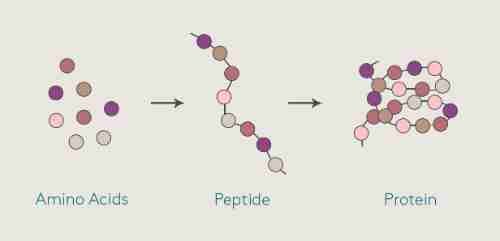Collagen’s tripeptide-29 is the synthetic version of one of its component units. Large collagen molecules may be constructed using tripeptide-29 as a building component. A collagen molecule’s structure, tertiary and quaternary characteristics, amino acid sequence, and relative frequency of the collagen molecule may be altered. Keeping in mind that collagen is essential for wound healing and tissue control is critical. Researchers believe tripeptide-29 has the potential to affect a wide variety of bodily functions.
Tripeptide-29: A Look at Its Research Background
Tripeptide-29 is a limited antagonist of the collagen receptor-GPVI in vitro. Because it is found on platelets, GPVI is a critical player in the clotting process. Thrombogenicity refers to the role collagen fibers play in stimulating the accumulation of collagen in vascular tissues, which is the first step in tissue healing and creating a clot in the bloodstream.
Tripeptide-29’s Function in the Body (Topical)
Regarding animals, collagen is one of the most frequent substances. It is found in all creatures, including humans, reptiles, fish, birds, and even algae. Cell signaling, integrin, and fibronectin are examples of transmembrane proteins that it affects, as are muscle fibers, skin, ligaments and tendons, teeth, scar tissue, and the eye’s vitreous humor.
The Control of Fibrosis in Tissues: DPP-IV activity is reduced by Tripeptide-29 in vitro using a fish scale, bovine skin, pig skin, and chicken feet as delivery vehicles (DPP4). Anti-inflammatory signaling cells have been shown to contain DPP4, a cellular death enzyme. Cell membranes are made up of lipids, which means they cannot release growth factors, chemokines, and vasoactive peptides. Because it is involved in glucose metabolism and breaks down incretins, a hormone that assists in blood glucose reduction, its responsibilities are not limited.
Animal studies have shown that DPP4 promotes scar tissue formation in organs, including the liver and kidney. Tripeptide-29 increases glucose uptake by cells, reduces fibrosis in the kidneys, and inhibits DPP4 activity simultaneously. Consequently, new avenues of investigation have opened up, not only in treating diabetes but also in terms of studying its pathological effects.
Tripeptide-29, according to research, may influence the stability of collagen in the body. Scientists have also discovered that the last peptide in the tripeptide monomer influences the fine collagen structure of the tripeptide monomer (in an A-B-C trend, C has the most influential capacity on collagen stability).
Tripeptide-29 and Skin Tone: What Is the Connection? Recent research has looked at the role of tripeptide-29 in helping to keep skin looking young. It has been shown that a compound called Tripeptide-29 may slow down the aging process by enhancing skin elasticity, minimizing wrinkles, and retaining moisture. Preventing brown or red spots from forming is one way it improves skin tone. Tripeptide-29 therapy improved hydration and increased flexibility in 90 percent of the animal studies. Increasing the skin’s turnover, topical tripeptide-29 and some hexapeptides lessen fine lines, hollowing around the eyes and feet.
The Tripeptide-29 works well: Free radicals are the primary cause of aging in tissues and cells. The body contains built-in defenses to prevent the effects of free radical damage, but they become less effective with time. Hydrolysate of Tripeptide-29 is a potent radical scavenger in investigations. Buy Tripeptide-29 (topical) if you are a researcher.
Tripeptide-29 has side effects.
As with other collagen peptides, the actions of Tripeptide-29 may be detrimental. The most common Tripeptide-29 side effects include:
- Constipation.
- Diarrhea may occur if the body cannot digest large amounts of collagen proteins.
- Patients who take collagen peptides are at greater risk of developing kidney stones because collagen peptides include the amino acid hydroxyproline. The presence of hydroxyproline risk factors may accelerate kidney stone development.
- Using collagen hydrolysate to supplement a medication regimen may cause it to be ineffective.
- Allergy Responses: Collagen peptides and hydrolysates may induce skin breakouts due to allergy reactions
